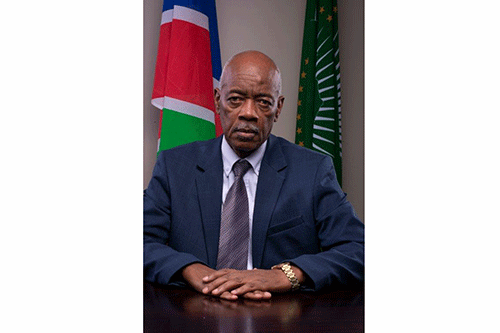The church in Namibia is at a crossroads in more ways than one. On the one hand, the church is trying to shed off the image of being associated with Euro-centrism – and on the other, she needs to carve out her own local cultural identity that is different from that of the church in other parts of Africa.
During the Apartheid era, the Bible was often used to justify apartheid colonialism. White superiority was enhanced by a distorted interpretation of scripture – and equally, black subordination was reinforced by the same method.
The pictures of a blue-eyed blond Jesus and white angels in books – which pictures can be highly contested – did not help matters either. This is a discussion for some other time. Therefore, many African radicals, especially those with a strong bent towards Pan-Afrikanism, have identified Christianity with black oppression.
Before independence, Christianity was mainly the domain of the so-called mainstream churches including the Lutheran, Catholic, Anglican and African Methodist churches.
There were pockets of other evangelical, pentecostal as well as African traditional churches in between. The mainstream churches were the ones that mainly identified themselves with the oppressed and which later also collectively created the Council of Churches in Namibia (CCN).
Before independence, the CCN, together with other progressive forces, was at the forefront of the struggle. This was mainly informed by the liberation theology of Latin America, which is premised on the assumption that the church cannot remain distant in the face of social injustice.
At the other extreme, there was the Dutch Reformed Church, which underpins Afrikaner ethnic identity and that, to a large extent, justified apartheid.
Pentecostalism in Namibia only gained momentum shortly after independence in 1990, with streams flooding in from Nigeria, DRC, Zimbabwe, Zambia etc. This has been mainly accompanied by the prosperity gospel and the hierarchical leadership structures where, in some instances, the leaders are worshipped by their followers like movie superstars.
Some Namibian pastors have copied this culture, lock; stock and barrel. The preaching of the gospel in other parts of Africa might have been influenced by specific cultural conditions and I do not have an issue with that. However, the gospel in Namibia needs to be contextualised without just “copying and pasting”.
After the attainment of independence in 1990, the church seems to struggle to define a new role in the socio-economic development of the country. Of late, a new coalition of churches called the Alliance of Christian Churches in Namibia seems to gear itself up to address the socio-economic challenges in the country. A very commendable gesture indeed.
We also need to “liberate” the church from being identified with Euro-centrism, while at the same time we try to identify “a contextual cultural niche” that is unique and different from other parts of Africa.
This is quite a tight rope that needs to be navigated with the necessary cultural sensitivity it deserves. And this needs to be done without antagonising the people we are trying to evangelise. The apostle Paul tells us in the book of I Corinthians 9: 22 that “…I have become all things to all men, that I might, by all means, save some”.
Many well-meaning African Christians oppose anything African as “heathen” and anti-Christian and I think this is where they miss the point. We should differentiate between African cultures and the African traditional belief systems.
According to the Oxford Dictionary of Philosophy, culture is “…the way of life of a people, including their attitudes, values, beliefs, arts, sciences, modes of perceptions, and habits of thought and activity.”
On the other hand, religion involves concepts that deal with ‘religious beliefs i.e. issues around existence, necessity, fate, creation, sin, justice, mercy, redemption, and God”.
Culture is a little bit broader than religion and it covers religion.
My thesis is that Christianity does not have a problem with African cultures in general, but it has a problem with some African belief systems.
To the extent that an African belief system advocates for ancestors’ worship and communicating with the dead, for example, then that would clash with Christianity. Why? Jesus says in John 14: 6 “…I am the way, the truth, and the life: no man comes to the Father except through me.”
The church in Namibia needs to define its cultural context that is different from the Euro-centric notion of the church as well as different from the cultural contexts in other parts of Africa, without compromising the central tenets of the gospel.


